
IN PICTURES: Displaced Palestinians living in uncertainty in schools
Published date: 6 March 2015 03:36 GMT
|
Last update: 9 years 8 months ago
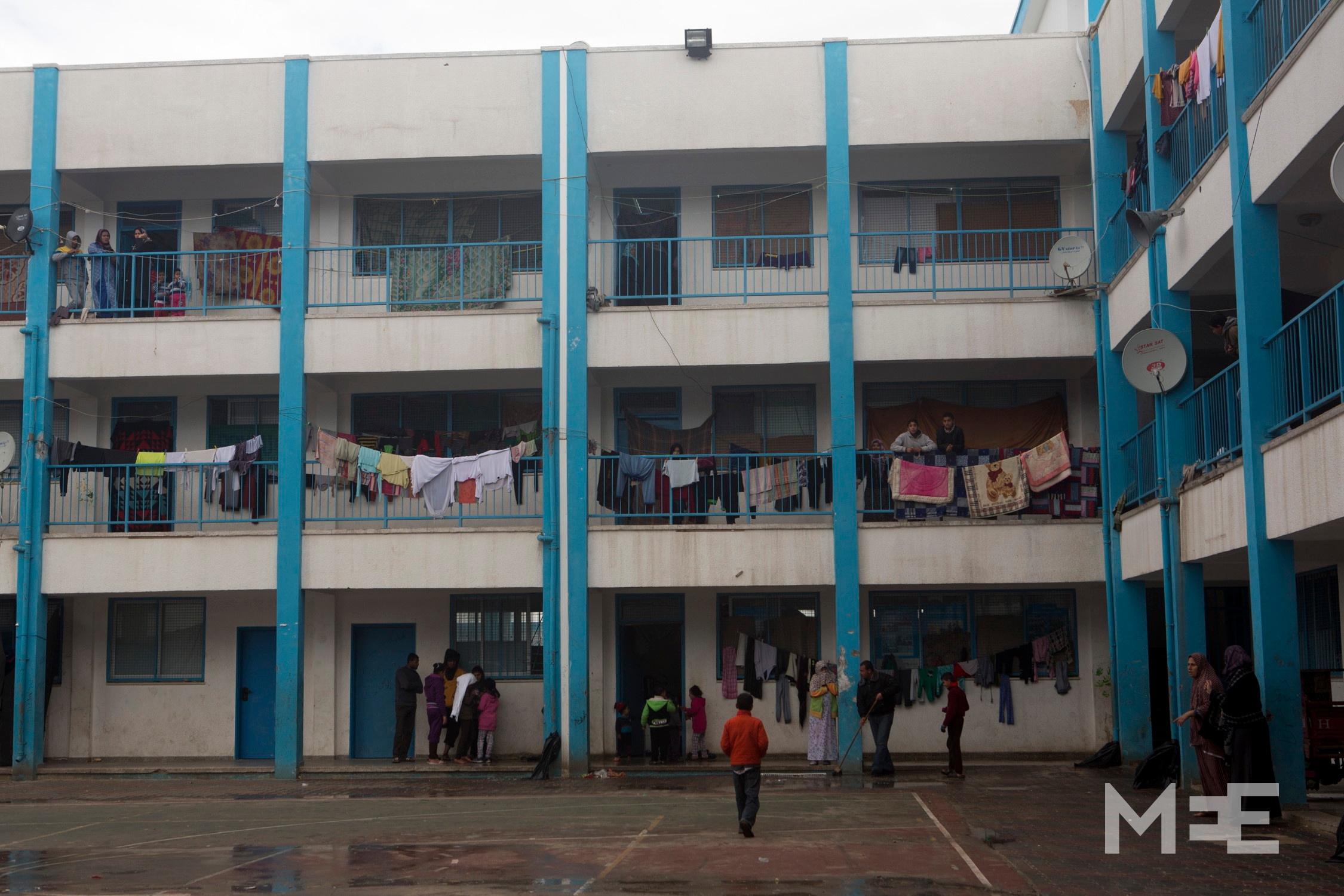
The Beit Hanoun Boys Preparatory School A has been turned into one of the 15 UNWRA-run ‘community centers’ to shelter some displaced Palestinians who lost their homes during the last Israeli offensive (MEE/Anne Paq)
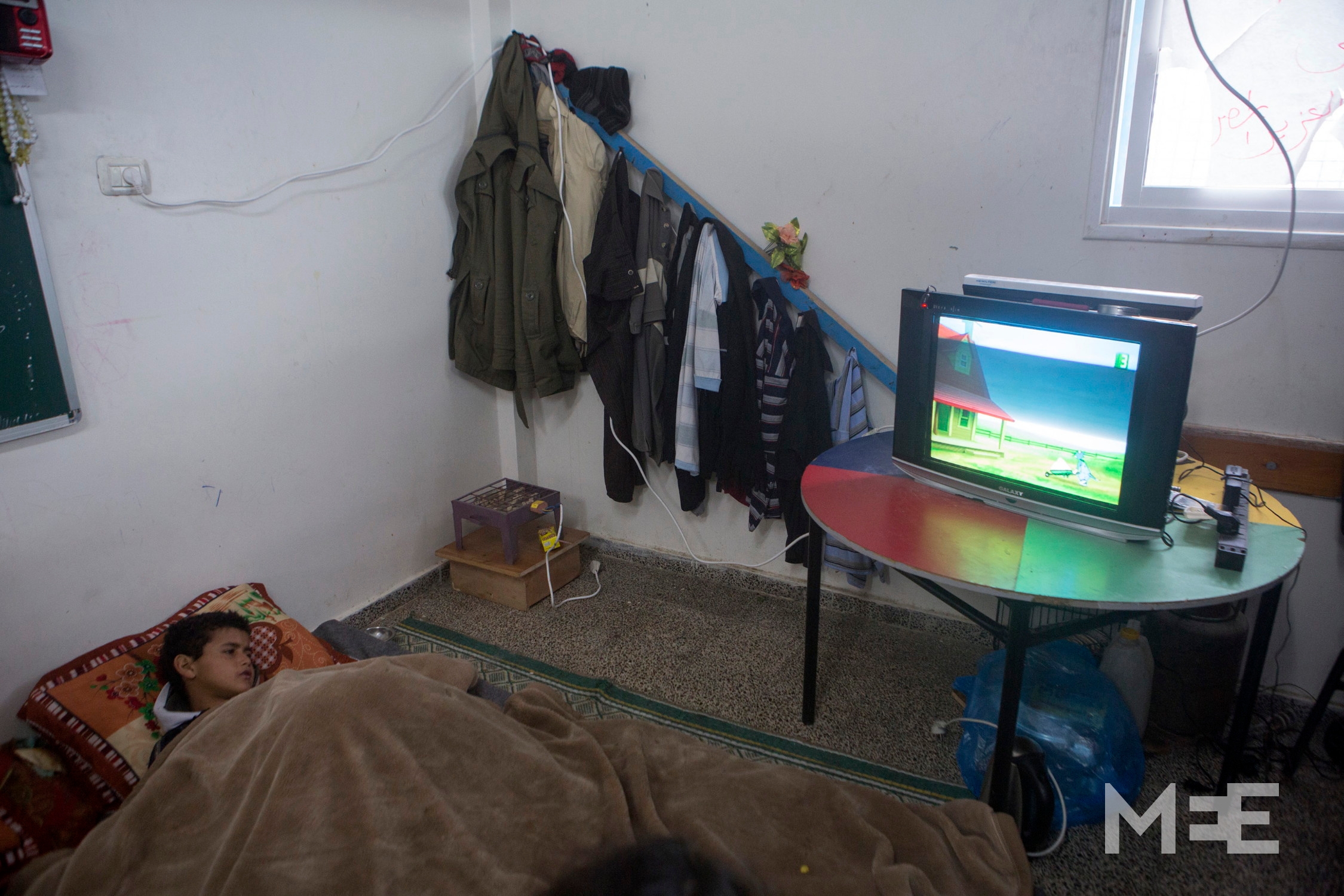
The schools are not designed to accommodate people for a long time, especially during harsh winter conditions. Additional blankets were distributed but few families have heaters (MEE/Anne Paq)
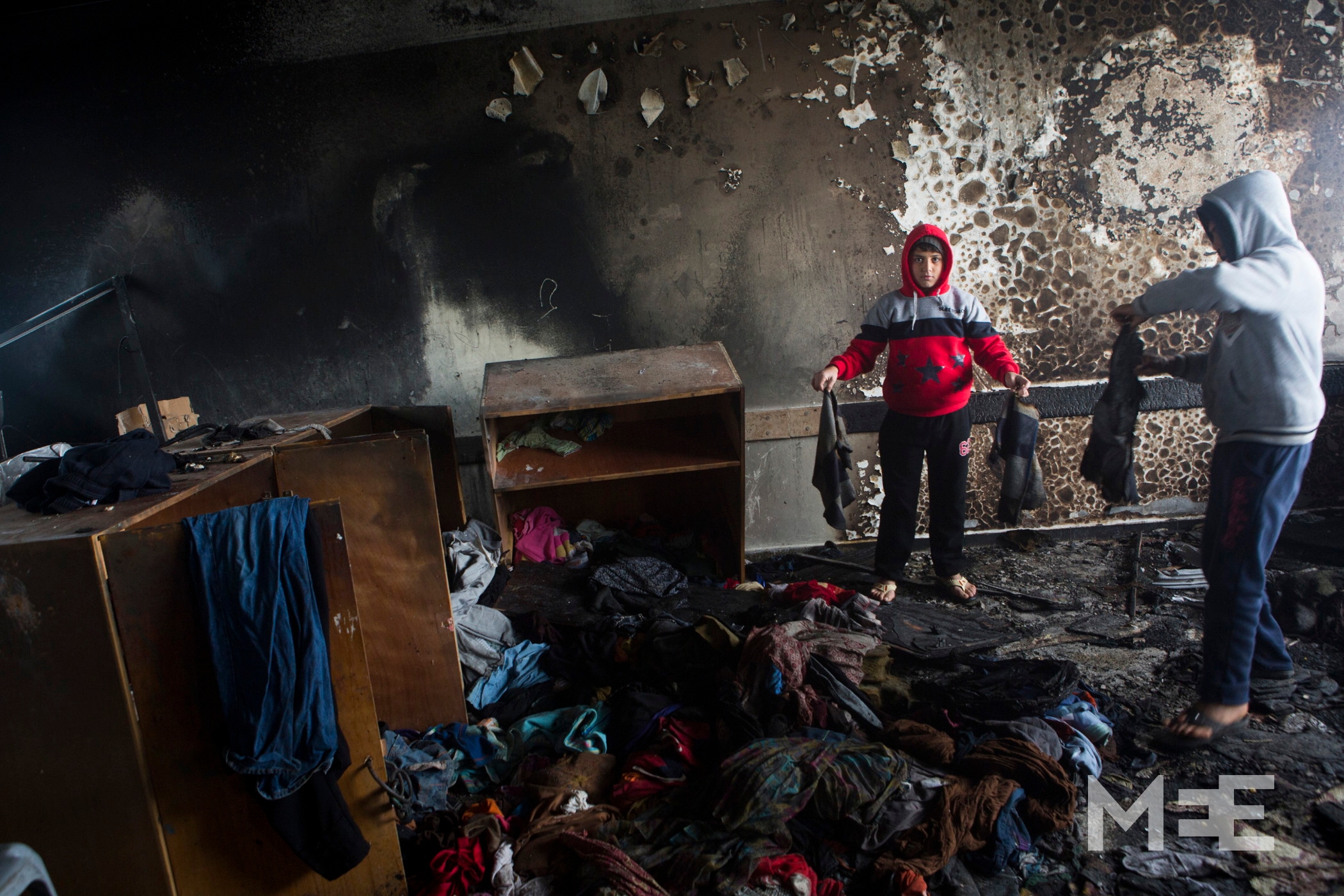
The burned room where 16-month-old Ezzedin Jad al-Kafarneh died following a fire on 16 February (MEE/Anne Paq)
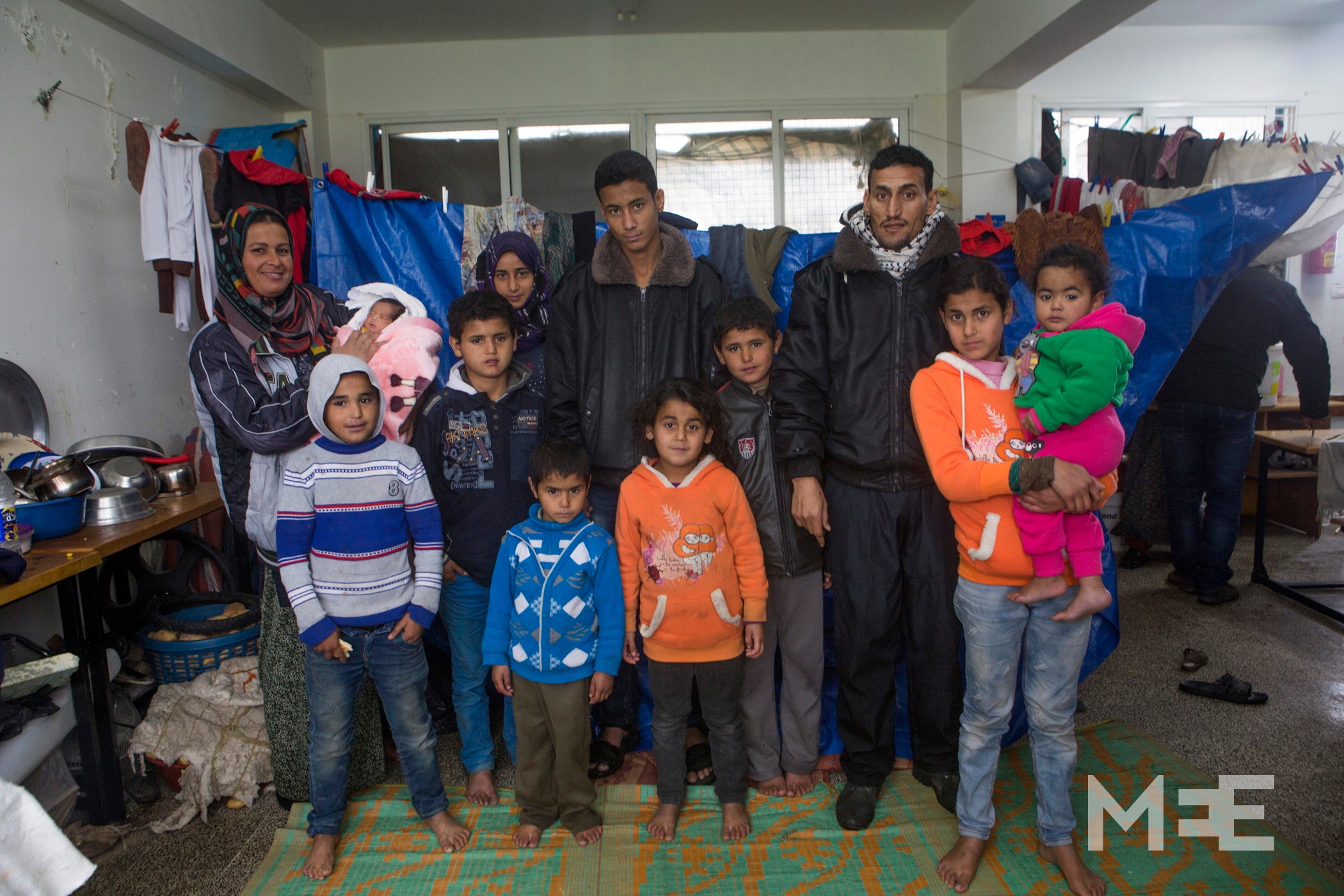
Nehad al-Masri with her 8 children and husband: “We left our home running. With the baby here it is very difficult. We are cold; and the electricity often cuts. We do not have enough food for the whole family, or clothes.” (MEE/Anne Paq)
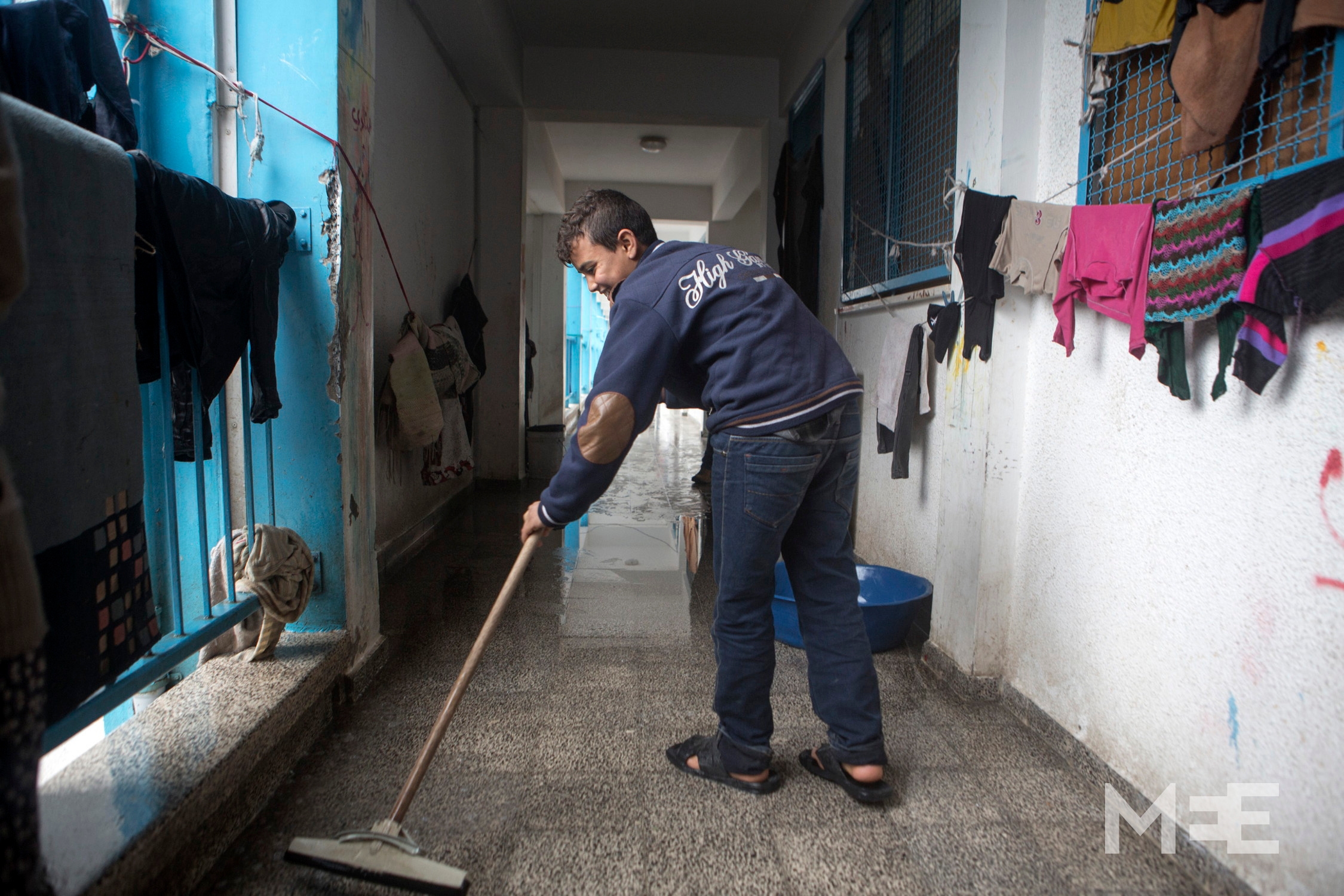
Around 10,000 displaced Palestinians stay in the UNRWA-run community centres (MEE/Anne Paq)
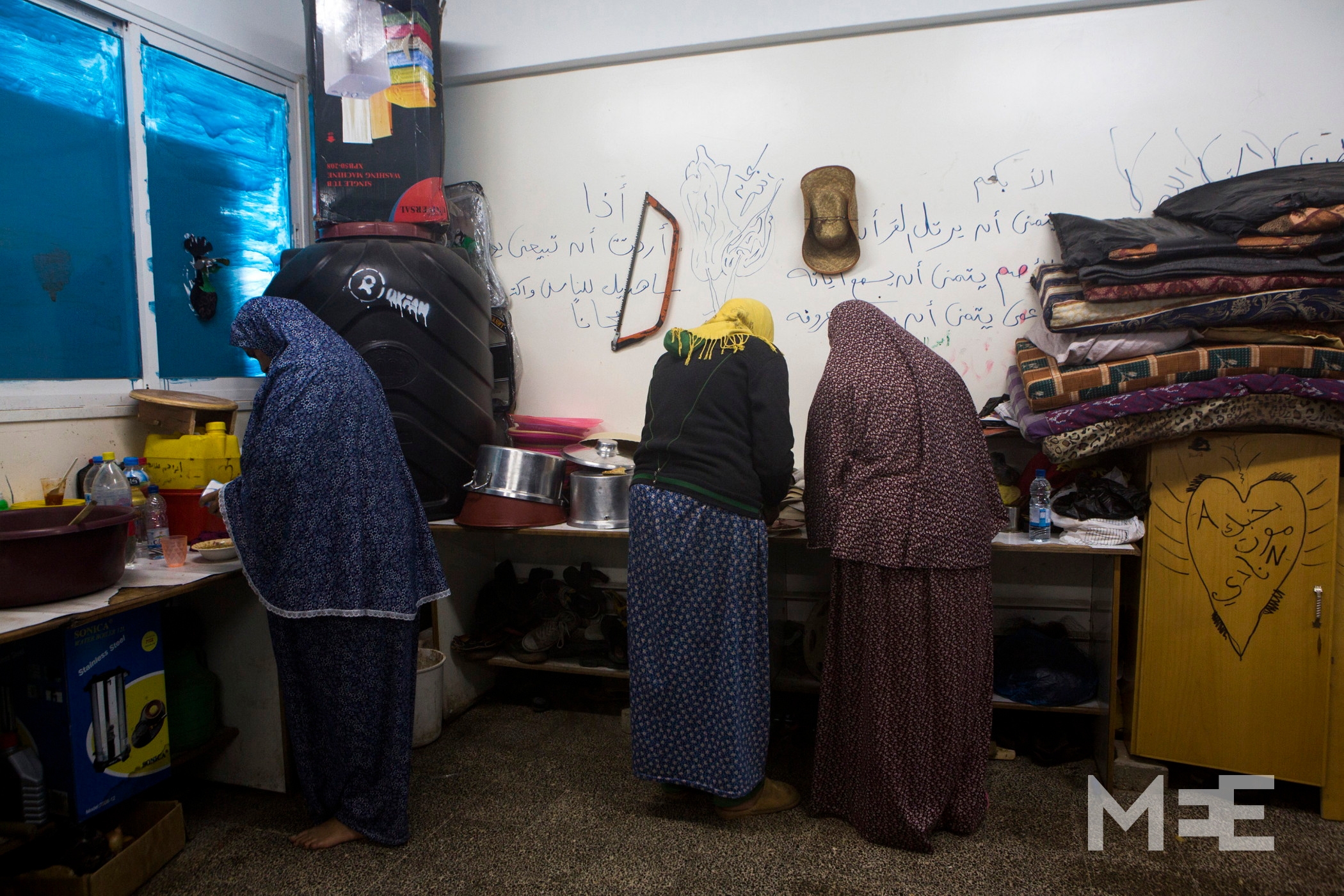
Women prepare a meal after receiving the daily food distribution. Warm meals are provided at least once every three days (MEE/Anne Paq)
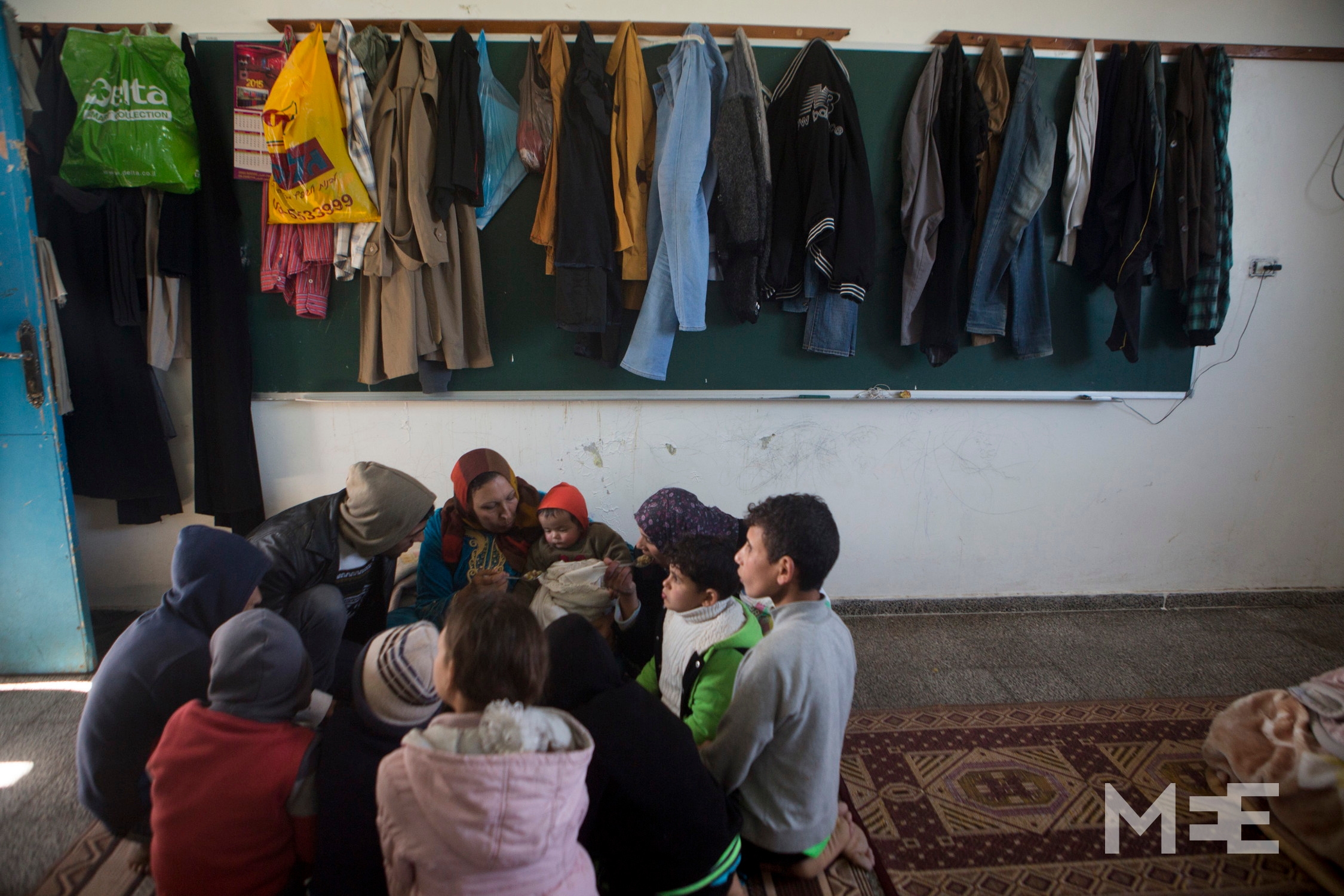
Many families cannot afford to buy extra furniture such as dressers to store their clothes (MEE/Anne Paq)
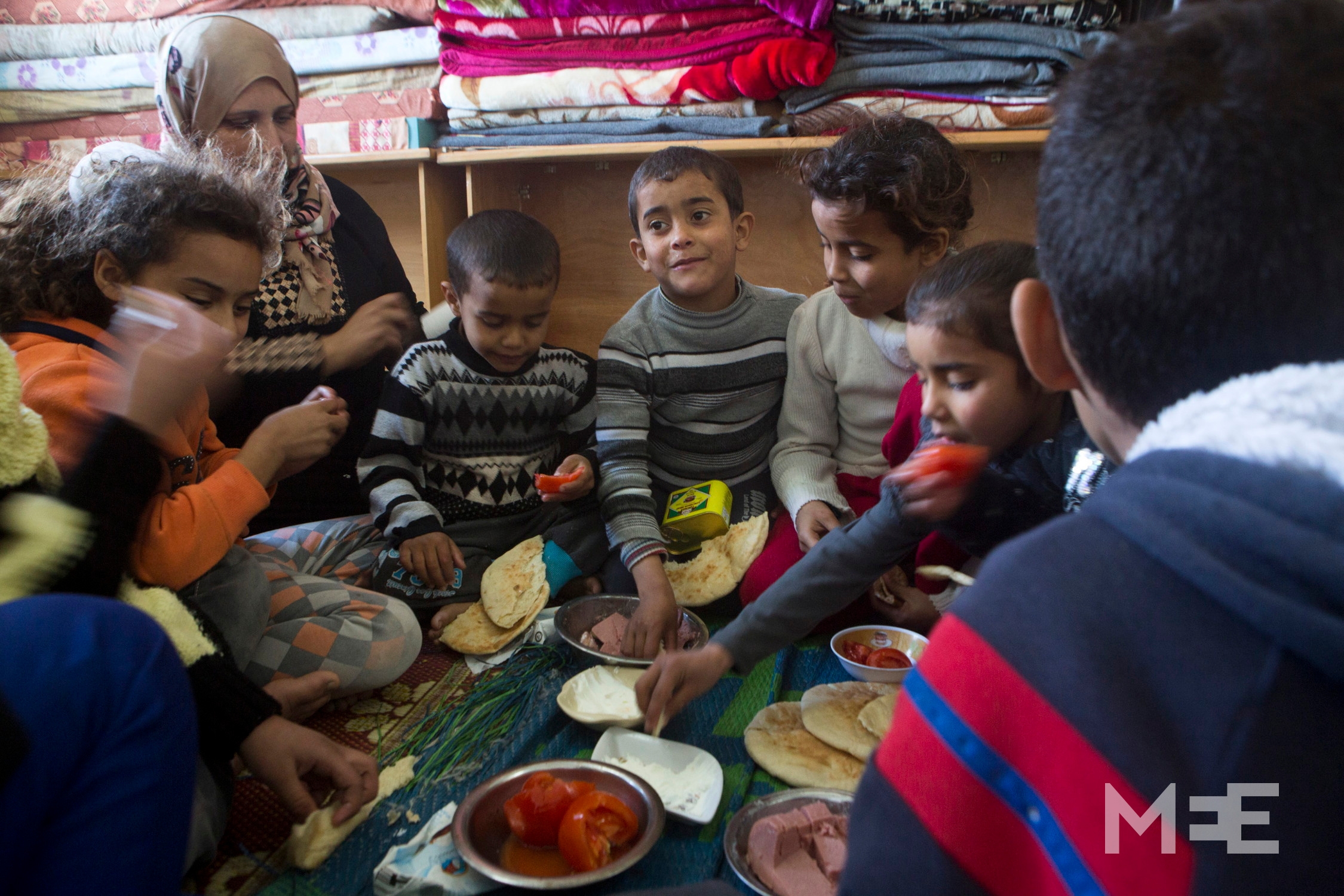
There can be up to two families in each room (MEE/Anne Paq)
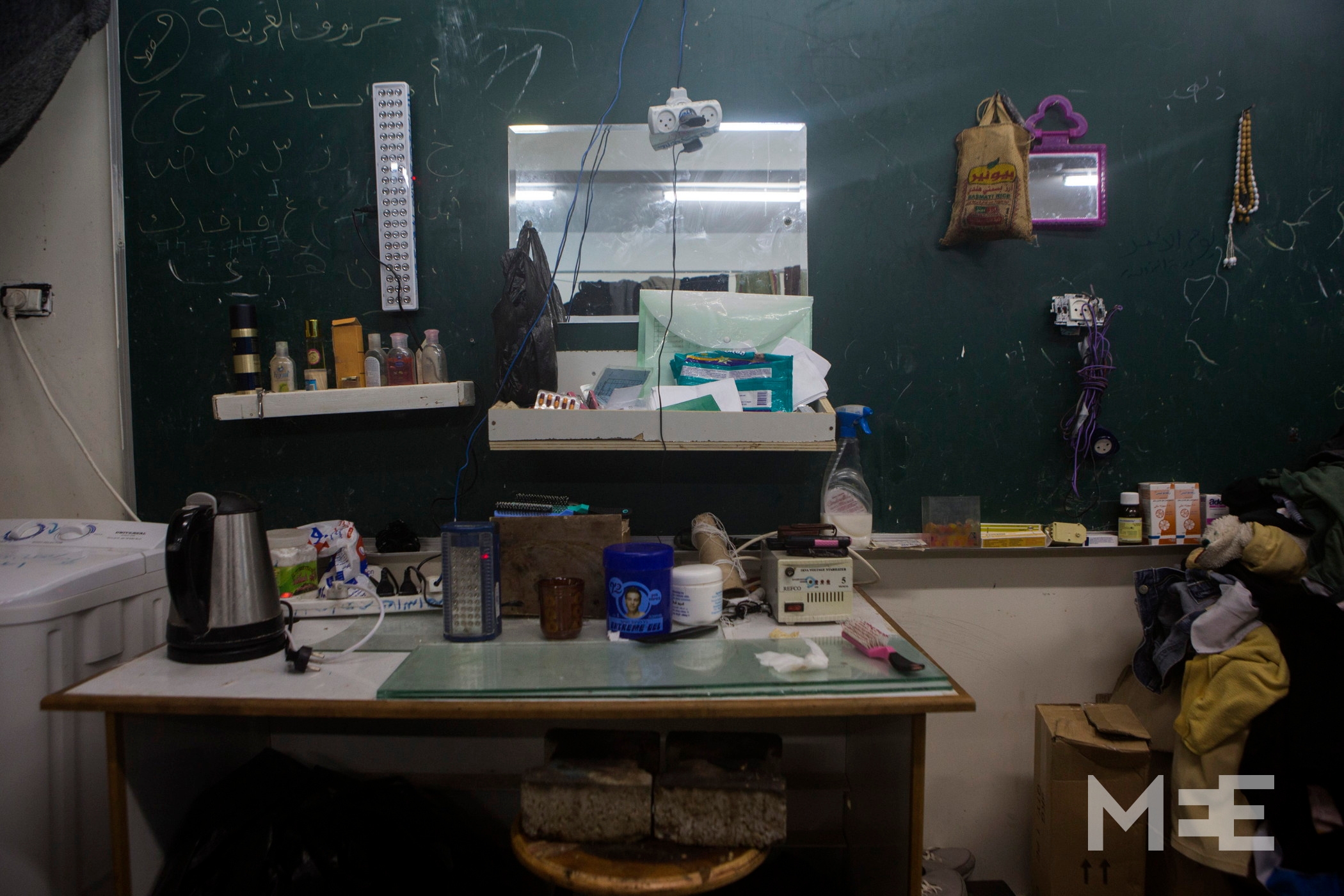
When asked how long they might stay in the school, most people could not answer. That uncertainty leaves many in psychological distress (MEE/Anne Paq)
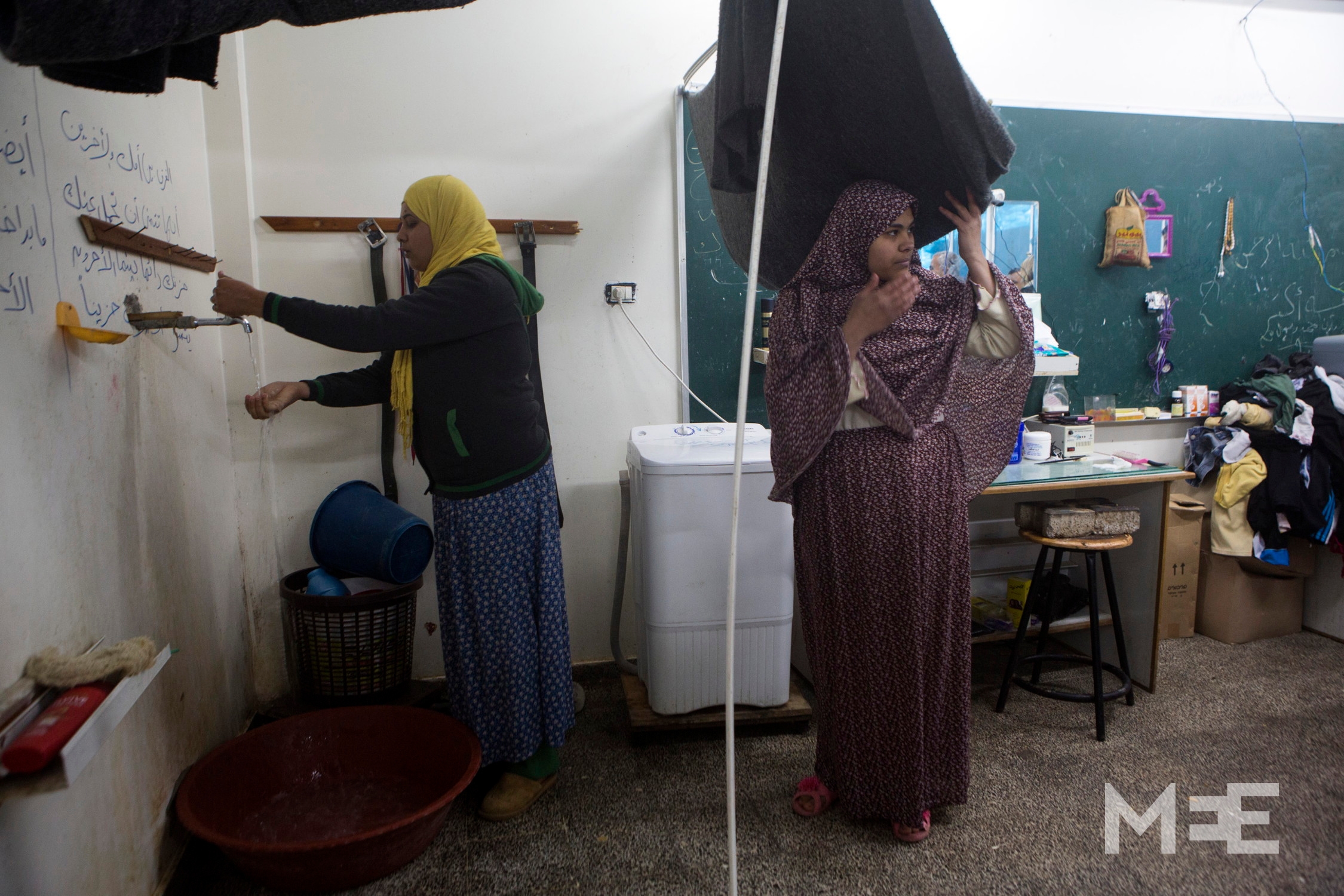
The lack of privacy seems to be one of the most difficult issues for families after many months, especially for women (MEE/Anne Paq)
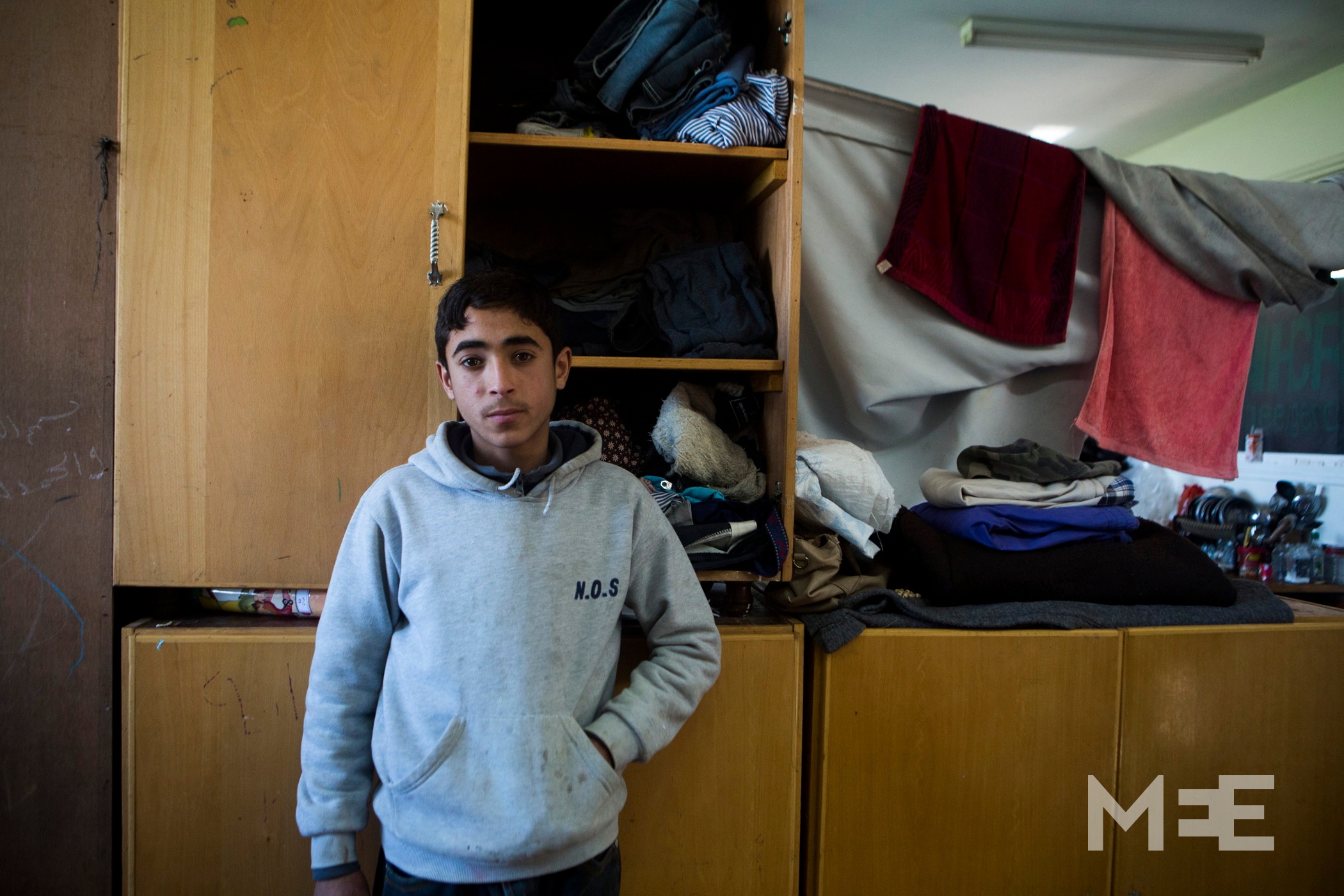
Ali al-Masri, 16: “I feel like in a prison. Before we had a big house, with space, but it was totally destroyed”. Ali has to walk three kilometres to go to school. He does not have special clothes for the rain (MEE/Anne Paq)
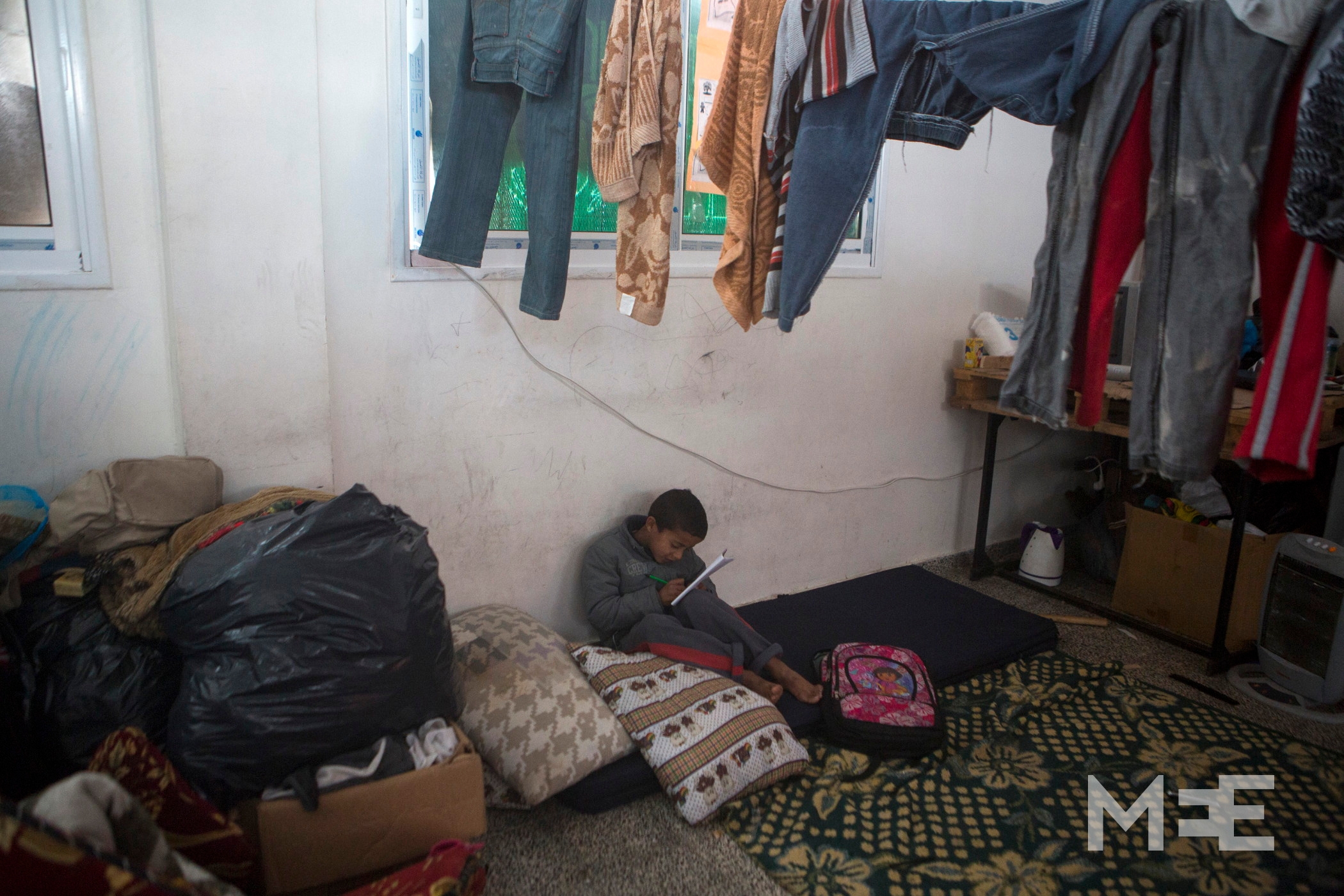
A child studies in his room in one of the schools of the al-Bureij refugee camp, which also is used as shelter for displaced refugees (MEE/Anne Paq)
Middle East Eye delivers independent and unrivalled coverage and analysis of the Middle East, North Africa and beyond. To learn more about republishing this content and the associated fees, please fill out this form. More about MEE can be found here.

